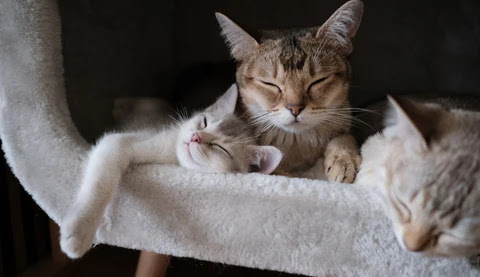Cat Age Chart: is 2 years old for a cat
Average cat lifespan
As cat owners, we want our furry friends to live long, healthy lives. Understanding their lifespan can help us provide them with the proper care and attention they need. The average lifespan of a cat is around 15 years. However, this can vary depending on various factors such as genetics, diet, and overall health.
How old is my cat?
Do you ever find yourself wondering how old your cat is in human years? While it’s a common belief that one cat year is equal to seven human years, this isn’t entirely accurate. Cats age differently than humans, and the aging process can vary depending on the breed and individual cat. Below, we’ll explore more about feline aging and how to calculate your cat’s age in human years.
Feline age calculator
If you’re curious about your cat’s age in human years, you can use a feline age calculator to get an estimate. These calculators take into account the average lifespan of cats and provide a rough estimate of their age in human years. Simply enter your cat’s age in years or months, and the calculator will do the rest. Keep in mind that this is just an estimate and not an exact science.
Cat years versus human years
While the one cat year equals seven human years rule may not be accurate, it can provide a general guideline for understanding the aging process of cats. In the first year of a cat’s life, they go through rapid growth and development, which can be akin to the first 15 years of a human’s life. After that, each additional cat year can be roughly equivalent to four human years.
For example, a two-year-old cat would be around 24 in human years. However, it’s important to note that this is just an approximation, and different factors can influence the aging process.
Signs of aging in cats
Just like humans, cats experience various signs of aging as they get older. It’s essential to be aware of these signs to ensure your cat receives the necessary care and attention.
Some common signs of aging in cats include:
- Decreased energy levels
- Weight gain or loss
- Changes in eating habits
- Dental issues
- Decreased mobility
- Changes in litter box habits
- Increased sleeping
- Changes in coat condition
If you notice any of these signs in your cat, it may be time to consult with a veterinarian to ensure they receive appropriate care and treatment.
Cat aging process
The aging process in cats is similar to that of humans, albeit at a faster pace. While every cat is unique, here is a general overview of how cats age:
First Year:
During their first year, cats experience rapid growth and development. They transition from being a playful kitten to a more independent and curious adult cat.
Young Adult:
From one to six years old, cats reach their prime adulthood. They are generally active, playful, and in good overall health.
Mature Adult:
Between the ages of seven and ten, cats enter their mature adult phase. They may start showing some signs of aging, such as decreased energy levels and minor health issues.
Senior:
Once a cat reaches the age of 11 or older, they are considered seniors. Senior cats may experience more significant health issues, such as arthritis or kidney disease. However, with proper care and attention, they can still lead happy and fulfilling lives.
Cat age conversion chart
While the one cat year equals seven human years rule is not precise, it can be helpful to have a rough idea of your cat’s age in human years. Here is a simplified cat age conversion chart:
Cat AgeHuman Age Equivalent1 year15 years2 years24 years3 years28 years4 years32 years5 years36 years6 years40 years7 years44 years8 years48 years9 years52 years10 years56 years Remember, this is just a rough guide, and individual cats may age differently based on their genetics and overall health.
Measuring cat’s age
While it’s interesting to calculate a cat’s age in human years, it’s also important to understand that every cat is unique. Factors such as breed, genetics, and lifestyle can greatly influence their lifespan and aging process. By providing your cat with proper nutrition, regular veterinary care, and a loving environment, you can help ensure they live a long, happy, and healthy life.
Remember to consult with your veterinarian for any specific questions or concerns regarding your cat’s age or health. They can provide personalized advice based on your cat’s individual needs.













